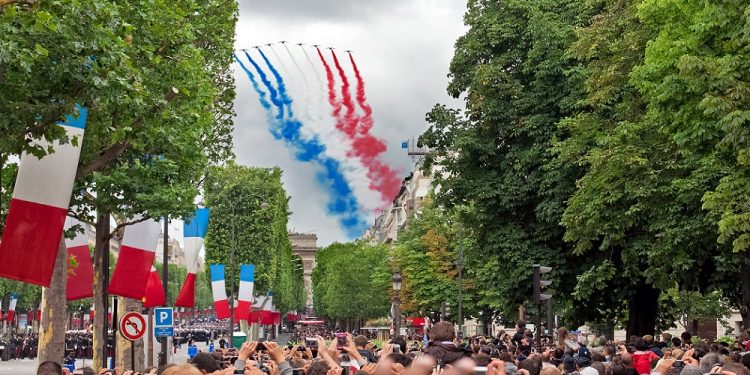
Bastille Day
Known officially as La Fête Nationale, the day English-speaking people call Bastille Day and the French commonly refer to as Le quatorze juillet, celebrates the storming of the Bastille on the 14th of July, 1789. This event is often considered the start of the French Revolution, although only seven prisoners were released from the infamous prison in Paris when it was attacked by a mob eager to seize the shot and gunpowder it contained.
Though the governor of the Bastille eventually surrendered to the mob, there was fierce fighting in which ultimately ninety-eight attackers and eight defenders were killed. The released prisoners were of no political significance, but the storming of the Bastille was indeed a symbolic victory. The Bastille was notorious as the place where the king imprisoned those who opposed his absolute rule without due process.
Within days of the storming, feudalism was abolished in France, and by August, the “Declaration of the Rights of Man and of the Citizen” was published. This document, inspired by the American Revolution, is a seminal work in the development of human rights as we understand them today.
A year later, in 1790, a Fête de la Fédération was held to celebrate the fall of the Bastille and to symbolize the unity of the French people during the Revolution. Delegates from across France gathered in Paris to declare their allegiance to a single nation, which was an important unifying aspect of the Revolution. It is still this aspect—the unity of the people—that is emphasized today in celebrations on Le quatorze juillet.
During the Napoleonic era, the celebration fell in popularity, but it was revived and formalized by the National Assembly and the Senate in 1880. It was a deliberate decision to combine the storming of the Bastille with the Fête de la Fédération to dilute the potentially controversial nature of the storming with a celebration of unity that no one would wish to oppose. The government of the time wanted to emphasize national unity and certainly not revolution, since this was a government founded on the collapse of the Paris Commune.
How is it Celebrated?
Today, La Fête Nationale is celebrated with military parades throughout France. The largest parade takes place in Paris, with a march down the Champs-Élysées and an address by the French President. This event is shown on French television and is widely watched by ordinary French people. It is the largest and oldest military parade in Europe.
Bastille Day is a national holiday, and most people enjoy a day of summer celebration, ending with dinner in a restaurant. In most cities and larger towns, there will be fireworks in the evening. In Paris, this takes place near the Eiffel Tower. In coastal towns, they will be launched over the water, and restaurants with a view of the fireworks display will be especially popular that evening.
In Paris, there is a large open-air dance in Place de la Bastille, where the prison once stood, and dances are held in other cities as well.
In addition, les sapeurs-pompiers (firemen) open their firehouses to the public to visit and have demonstrations of their skills, as well as dancing at Les Bals des Pompiers. These are often rather wild parties, sustaining the French belief in the attractiveness and virility of firemen.
When is Bastille Day?
Bastille Day is not a floating holiday and always falls on July 14 of each year.








